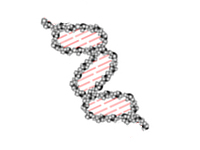

|
"Information is the lifeblood of modern medicine. Health information technology (HIT)
is destined to be its circulatory system. Without that system,
neither individual physicians nor health care institutions can perform at their best or deliver
the highest-quality care, any more than an Olympian could excel with a failing heart."
- David Blumenthal, MD, MPP
|

|
Denmark has fully integrated country's hospital and clinical health information technology,
connecting virtually every hospital, clinic, citizen and physician.
Many European countries (including the Great Britain) and Australia have already adopted
electronic doctor and e-screening services.
Canadian federal and provincial governments have undertaken various e-healthcare reforms with mixed public acceptance.
The affordable healthcare act and HIPPA regulations have certainly put the United States
on the cusp of disruption and resulting innovation, albeit still marred by regulations,
privacy concerns, system incompatibilities, information fragmentation, resistance from medical practitioners and associations,
IT costs and, to a lesser degree, consumer concerns.
However, growing medical errors, high cost of care, shortage of doctors, lack of comprehensive coverage,
information system incompatibilities, decreasing patient focus, and out-of-date procedures and diagnostics,
are all fuelling the need to roll out EHR and other medical information systems.
Patient-centric care and adoption of 'twenty-first century' medicine such as mobile sensors, enhanced diagnostics
and 'Sri-like' systems that not only could provide useful information to patients but also 'integrate-in'
the real family doctor, nursing staff, nutritionists, historical data, drug alerts, paramedic notifications,
and well-matched specialists.
Each of these could potentially respond in near real-time via email or web 2.0+ interfaces.
Of course regulations and oversight must also need to keep abreast to safely and successfully roll out
such initiatives and shield the early adopters from medical malpractice or fishing claims,
yet, devising a reasonable compensation scheme for the participants.
Pilot projects, and in some cases comprehensive initiatives are being launched to attempt
to break down the interoperability barriers by leveraging mobile devices, flash drives, cloud computing and various other technologies.
Customer-centric medicine is in the forefront of our collective conscience on one side,
and public health and global disease surveillance initiatives are necessary patient and citizen protection fronts from the other side.
Further shifts that will distinguish the twenty-first century from the practices of the previous century
include genome-based medicine, medical informatics, neural imaging and micro- and Nano-transplants.
In short, healthcare is destined to be an information technology in the future
(of course, centred around its human participants including patients, doctors and nurses).
Almost every healthcare-related enterprise needs to be adaptive to face the disruption and innovation primed towards the healthcare industry.
Adaptive Enterprise consultants can assist government agencies, healthcare organizations and doctor offices
in gaining mutual insights into the forefront of the electronic medical revolution,
identifying requirements and assisting in enhancing and developing software systems.


© Copyright 2003-2018 Adaptive Enterprise Inc. - All Rights Reserved
|



